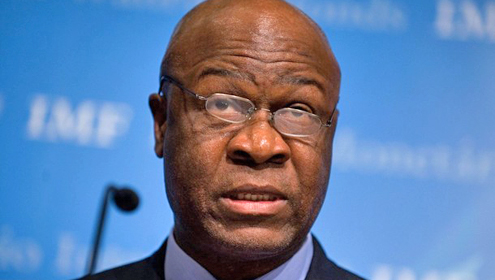- Washington “follows with interest” Morocco’s openness onto Africa (John Kerry)Posted 11 years ago
- The trial of South African Paralympic champion Oscar Pistorius opened in Pretoria on Monday.Posted 11 years ago
- USA welcomes efforts of King Mohammed VI in MaliPosted 11 years ago
- Egypt’s population reaches 94 millionPosted 11 years ago
- Mugabe celebrates his 90thPosted 11 years ago
- Moroccan Monarch to Build a Perinatal Clinic in BamakoPosted 11 years ago
- King Mohammed VI handed a donation of bovine semen for the benefit of Malian breeders.Posted 11 years ago
- Moroccan King’s strategic tour to Africa: Strengthening the will of pan African Solidarity and stimulating the south-south cooperation mechanisms over the continentPosted 12 years ago
- Senior al-Qaida leader killed in AlgeriaPosted 12 years ago
- Libya: The trial of former Prime Minister al-Baghdadi AliPosted 12 years ago
Cameroon: More transparency on oil wealth management is needed
 Authorities and civil society in Cameroon agree on the difficulty of obtaining reliable and complete data on oil, almost entirely in the hands of foreign companies, according to a report on transparency in extractive industries published in Yaoundé.
Authorities and civil society in Cameroon agree on the difficulty of obtaining reliable and complete data on oil, almost entirely in the hands of foreign companies, according to a report on transparency in extractive industries published in Yaoundé.
Over the past three years, the report says, oil production in Cameroon has evolved from 31,910,000 barrels in 2006 to 31,240,000 in 2007 and 30.70 million in 2008, a continual decline.
The share of the state, represented by the National Hydrocarbons Corporation (NHC), has increased from 65.8% in the first year to 66.4% in the second and 66.8% in the third.
The mass balance has established a production of 10,924,000 barrels reported by companies and 20,986,000 by the NHC in 2006, against 10.494 million and 20.750 million in 2007 and 10,183,000 and 20,511,000 in 2008. The amounts approved by SONARA vary from 1.310 million barrels in 2006 to 3,107,000 in 2007 and 2,954,000 in 2008.
Other important facts appear at all levels, like for the corporation tax, the flat fee, the proportional mining fee, the superficiality fee, signature bonuses, dividends and formations .For example, when companies has declared dividends of USD 33,447,000 in 2007 and 70,997,000 in 2008, the State reported rather 35,527,000 and 83,466,000, which makes differences of 2.080 million and 12.468 million dollars. Regarding the corporate tax, the amounts reported being paid by the companies are 198.680 million USD in 2006, 265,113,000 in 2007 and 292.880 million in 2008, while the perceptions for the state were about 191.017 million, 264.230 million and 278.357 million. That has produced differences of 7,662,000, 883,000 and 14,523,000 million dollars.
When asked about the relevance of the data compiled, the Minister of Finance, Essimi Menye, said: “the conciliator’s report is referring to anything that could have been accessed as information. All the work is done on the basis of terms of reference. So we cannot do what the terms of reference did not anticipate. That is why we will also revisit the terms of reference to improve the quality of data made available to the public. The Minister Essimi Menye spoke also about a possible use of inverse methods that involve going to the importing countries to look at the quantities that can be reported together. But the task is still arduous, since “most of the oil companies have their mother companies abroad. It is sometimes difficult to get information. But going beyond this difficulty, it’s interesting to consider that the oil and mining companies would have given such information, would it be authentic? Would the information given truly correspond to the amount they had imported? It can only trusted when we look at the contract that says what percentage was vested to each part, the head of a civil society organisation, FOCARFE, Ndoumbé Nkotto Honoré said.
